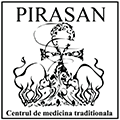The types of cancer originating in rectum or anus are known as colorectal cancer. The first formations are adenomatous polyps of small sizes or pre-cancerous lesions, of feeble even absent symptomatology. The symptoms may be late in appearing, even after the respective polyps or lesions have turned into neoplasic formations.
Symptoms
After the symptoms have occurred, their intensity may vary according to the number, the location and the size of tumors. Among the symptoms, we can mention the following:
- alterations of the intestinal passage (diarrhea, constipation or alterations in the consistency of the stool for more than several weeks)
- cramps, pains or abdominal discomfort that may irradiate to the perianal area
- urge to defecate and no stool
- stools doubled by bleeding or pus
- sensation of incomplete emptying of the large intestine
- weakness and fatigue
- loss of weight
- anemia
- anxiety and introversion
Causes
The risk factors that cause the alteration in the normal development of the cells in the tissue of the colon or of the rectum comprise: inflammatory diseases of the lower digestive system (ulcerative colitis, Crohn disease), family history of colorectal cancer, age (people of third age are prone to it), a diet with low content of vegetables and fruit and high content of meats and fats, a chaotic food regime – the person fails to observe a meal schedule; alcohol abuse, obesity and sedentariness, diabetes, altered genome in the HNPCC genes (2% of the patients with colorectal cancer have this genetic mutation, with neoplasic formations occurring around the age of 44) and APC (a genetic mutation affecting 1% of the patients with colorectal cancer), which causes the adenomatous polyps to occur, with onset of the neoplasic formations around the age of 40.
Treatment
Where there are adenomatous polyps, the treatment restores the flora and the mucous tissue of the large intestine. The patient’s lifestyle and food regime are revised and corrected, eliminating the alimentary habits that biased the formation of polyps. Local immunity is strengthened to ensure a good development of the tissular regeneration processes. The secretions of digestive enzymes are stabilized by action upon liver and spleen and pancreas.
In order to treat the neoplasic lesions and the malignant tumor formations, the doctor tries to stop the malignant processes and to remove the tumor cells in the first place. At immune level, the treatment increases the local immunity, so that the bacterias should be removed that biased and that maintain the malignant process. The structure of the large intestine’s walls is restored by stimulating the cell regeneration processes and the replacement of the malignant cells by healthy ones.
By the treatment sessions, acupuncture stabilizes the local energy network and initiates the cell regeneration, while the medicinal herb products regulate the hepatic activity and the activity of the spleen and pancreas, in order to cleanse the sick areas and to help the action of acupuncture.


